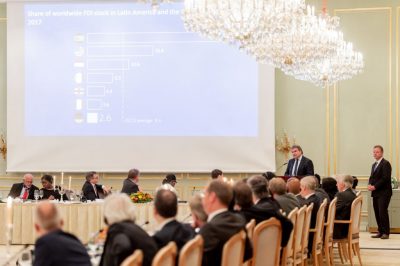Archived: Mr Sennes, must one fear the Brazilian elections?
This year’s elections are of the utmost significance. The country is in crisis due to tensions created by the rapid socio-economic and institutional progress seen in recent years. This progress has been accompanied neither by a renewal of the political elite nor by a competition-oriented agenda. The 2015/16 economic crisis, as well as various corruption scandals, destroyed the political centre and centre-right, and made room for a populist right-wing extremist candidate: Jair Bolsonaro.
Bolsonaro combines aspects of Chavez from Venezuela and Duterte from the Philippines. A former captain, he entered politics twenty-eight years ago and is currently in his seventh term of office as a Federal Deputy. An apologist for the military dictatorship, he is known for his statements in favour of torture and against human rights, homosexuals and blacks. His profile in Congress is predominantly against privatisation, budgetary adjustment and economic liberalisation. His economic advisor, however, is an ultra-liberal with a PhD from Chicago University and experience in Pinochet’s government in Chile. It is thus unclear what Bolsonaro’s platform will actually be should he be elected.
Lula and the PT are no longer the link binding the forces of the centre and centre-left, yet remain the dominant force in this camp. Haddad is smart and has a long-term vision, but has not yet demonstrated his ability to manage complex projects. His performance as Minister of Education was positive, although this is less unconditionally true of his time as Mayor of São Paulo. Bolsonaro and Haddad should go to the second round and Haddad should win.






